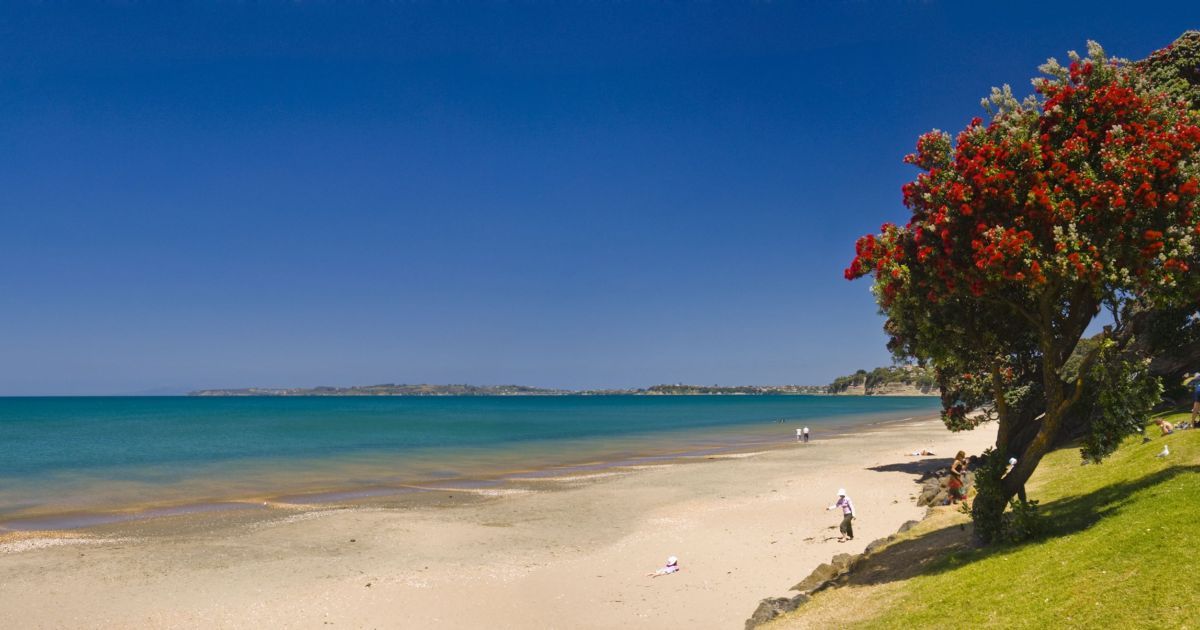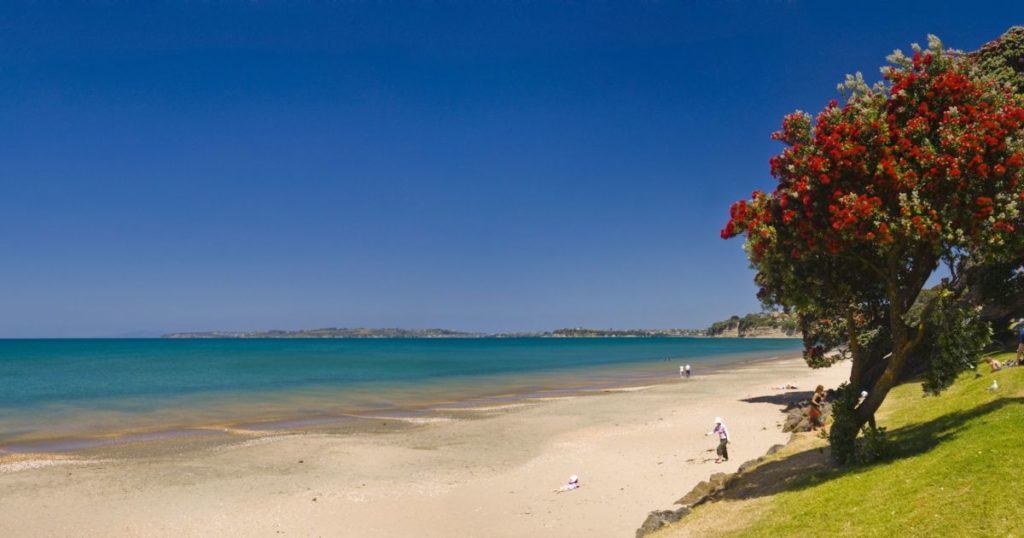

Colin Hogg’s book The High Road: A journey to the new frontier of cannabis (HarperCollins) has recently been published in America.
Here in New Zealand we’ve grown used to being ahead of the game in most matters of personal freedom and social progress. We know we’re a small player for sure, not quite five million people sprinkled sparsely across a string of not-unattractive islands on the bottom curve of the Pacific Ocean.
But though we’re little, we punch above our liberal weight. We’ve been anti-nuke since forever, for example. We’re racially, culturally, and sexually integrated (in theory at least). Women got the vote here a legendary 125 years ago and we’re on our third female Prime Minister.
Her name is Jacinda, she’s thirty-eight, and she’s so modern she isn’t actually married to the man she recently had her first baby with—the baby who, on a visit to the United Nations in September, she breastfed. Jacinda’s partner, Clarke, later unsettled a Japanese delegation when members drifted into a meeting room to finding him changing the baby’s diaper. The baby’s name is Neve.
As indicated, we are a relaxed people. We call everyone by their first names, we are liberal (as mentioned), conservationally-inclined, and consensus-loving. Except in one notable matter of the modern world—the liberalization of drug laws. Even though New Zealand somewhat expanded access to cannabis for medical use in December, it is being left behind on reform in general by large parts of the world, including parts of the very country that had previously appeared least likely to do such a thing (America).
New Zealand toed that line too, while at the same time its people illicitly embraced all manner of mind and mood-altering substances. Cannabis, in particular, has been a long-time favorite in New Zealand, where it has been enthusiastically grown and refined in our under-populated hills and dales and factories and attics for half a century and more. New Zealand ranks seventh in the world for cannabis consumption, according to the United Nations Office on Drugs and Crime. Around 12 percent of New Zealand’s population, from teenagers to baby boomers, use it regularly.
Cannabis is classified as a Class C drug in New Zealand, meaning it is placed in the least-dangerous category of illegal drugs. Cannabis oil and hash are Class B and the hard drugs, such as heroin and methamphetamine, are Class A. Anyone apprehended by the police with more than twenty-eight grams of cannabis—an ounce bag—is deemed a dealer, which must seem quite mad and unfair to anyone in Oregon or Colorado.
SUBSCRIBE TO CANNABIS WIRE’S MORNING NEWSLETTER
Original news and analysis from veteran journalists—straight to your inbox every weekday morning. (This newsletter is free now, but will soon be available only to subscribers.)
But to even harbor the thought that cannabis might soon be legally for sale in my home country, you’d have to put on your rose-colored sunglasses. Successive governments have chosen to keep cannabis as a Law and Order issue. This is the face of the growing demands for medicinal cannabis, and increasing mainstream acceptance of weed as a widely-used, relatively harmless substitute for harder drugs and even alcohol.
On the medical front, limited medicinal products have been available, expensively, to seriously ill patients only. Then in early December the government passed a law that will make it more widely available—in a year, when the rules and regulations are written. The law also allows terminally ill patients to use cannabis now without fear of prosecution. The law also paved the way for New Zealand companies to manufacture medicinal cannabis products for both the local and international market, and the first license went to Hikurangi Cannabis. Cannabis is seen as a potential opportunity for indigenous communities, such as Māori on the east coast of the North Island. The law was criticized by cannabis advocates for not going far enough and by opponents as a backdoor to decriminalization.
On the recreational front, so far, our liberal new Labour-led government has failed to deliver much hope for reform. Recreational use remains a crime under the Misuse of Drugs Act—a crime that could, theoretically, put you in prison for mere possession or use.
Though police don’t enforce like they used to. They have bigger problems to deal with—the sort of problems that grow from the cracks in drug laws that have conspired to keep cannabis cultivation and marketing largely in the hands of organized crime in New Zealand. And with criminal connivance, the drug market has diversified into the danger zones of methamphetamine, which is a growing, seemingly unsolvable problem, and, more recently, a horror story called synthetic cannabis, though it’s not cannabis at all, but rather a nasty combination of chemicals and a smoking agent. In the last year or so, there have been at least forty-five deaths in New Zealand attributed to synthetics, the highest per capita death rate for the drug in the world.
This, for us, is the fallout from an unfortunate experiment a few years ago when our government of the time allowed synthetic cannabis-like products to be sold legally to anyone over the age of eighteen. Shops selling the stuff sprang up across the country and bored kids in small towns got hooked. So the government, having virtually invented it, then turned around and banned it, which, of course, just made it go underground where it’s cheaper and quicker to make than it is to grow cannabis, and things look set to get a bit worse before they get better.
Back on the bright side, our new-ish government did promise, in a deal with coalition partner, the Green Party, to a national referendum on the legalization of recreational cannabis within its term, which doesn’t end till 2020.
Till then, those who would like to use cannabis legally live in hope, though there’s not much on the immediate horizon. If the referendum mirrors recent public surveys on the issue and says a resounding Yes, it could then still be some years beyond 2020 before New Zealand finally loosens up.
What is likely to hold up the process is a government enforcing a more conservative stance than its electorate appears to want. There’s a history in New Zealand of governments taking a moral high ground that the public has long since vacated, especially concerning alcohol.
Attempts to control our now-enthusiastic use of booze backfired badly in the past when heavy controls were put on its sale and consumption. There was even American-style alcohol prohibition in parts of the country.
But then came a swing of the pendulum with the liberalization of New Zealand’s liquor laws to the extent that alcohol now wreaks wide damage and cost to the country. A government might wonder: Could cannabis follow the same path?
Still, liberalization is very much in the news, with New Zealand newspaper editorials and opinion influencers increasingly calling for a change and pointing out the impressive possible financial incentives.
There was a flurry here too with the news that a Canadian cannabis company, Maricann Group Inc (now called Wayland Group), a publicly-traded medicinal concern based in Ontario, launched a recreational brand called Kiwi Cannabis. The company said it would sell four strains with New Zealand links in the names: Flightless Bird, Hawke’s Bay, White Feather, and Nelson’s Blue. Chloe Swarbrick, a Green Party member of Parliament, was upset by the news. Noting that New Zealand has a reputation for being clean, green, and making top-quality produce, she said, “It feels pretty odd to see an overseas company capitalizing on our reputation to sell their product. New Zealand isn’t just missing out when it comes to common sense cannabis regulation, we’re falling behind.”
Sometimes I wish I was back in Oregon.
SUBSCRIBE TO CANNABIS WIRE’S MORNING NEWSLETTER
Original news and analysis from veteran journalists—straight to your inbox every weekday morning. (This newsletter is free now, but will soon be available only to subscribers.)